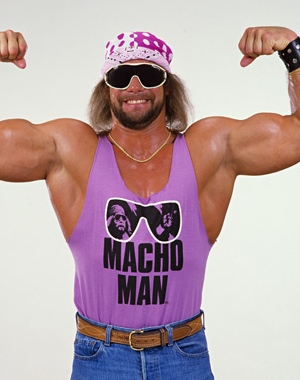|
|---|
Friday, May 22, 2009

Whatever it is the Internet has created--this force moves with light-speed--and I argue it will ultimately surpass the traditional "failed" economy, leaving mega-institutions and mega-corporations to operate, if they operate at all, in a second, inferior space.
What does this new economy look like? How does it function differently from capitalism? And what are the changes in social behavior?
This month's issue of Wired magazine hints at some of the distinguishing features of a "new new economy" (Chris Anderson's phrase). Anderson writes:
What we have discovered over the past nine months are growing diseconomies of scale. Bigger firms are harder to run on cash flow alone, so they need more debt (oops!). Bigger companies have to place bigger bets but have less and less control over distribution and competition in an increasingly diverse marketplace. Those bets get riskier and the payoffs lower.And then Anderson quotes venture capitalist Paul Graham who says, "It turns out the rule 'large and disciplined organizations win' needs to have a qualification appended: 'at games that change slowly'. No one knew till change reached a sufficient speed."
I'm not going to pretend that I'm an economist; because I'm not. But what I will do is tell you my experience.
I am witnessing an extraordinary level of collaboration and connection between strangers over the Internet. Many of you know that I run an Arts and Culture webzine called Escape into Life. Part of my job is to find writers and artists to feature in the webzine. I speak to scores of individuals each month asking for their participation in some form, whether it is posting their artwork or asking them to write articles.
Ten years ago, communicating with a stranger over the Internet and asking them to do an assignment for you was unheard of. I'm not paying these writers and my site barely gets 200 hits a day. My influence is virtually nil. And yet, I am greeted with interest and excitement when I tell people I would like them to contribute.
What has changed? Are we acting differently toward each other as a result of social technology?
I think everyone would agree that social media and Internet collectivity is changing the order of society. We don't know the extent social media will overturn aspects of the traditional marketplace, but we are seeing some interesting results.
As a professional blogger and social media freelancer, my work puts me at the center of a perfect storm that is leveling the playing field between institutions and individuals. These days it seems like the bigger you are, the worse off you are; and the tighter your network, the smaller your scope, the better you'll fare.
The New York Times talks about the influence Amazon.com is starting to have on the publishing industry because digital books for the Kindle are expected to be cheaper. The publishing conglomerates don't want to lower their prices, but the people demand that they do; and Amazon.com is actually putting their ass on the line, taking cuts from sales, because they have more faith in their new economic model then the economic model of corporate capitalism.
It's ridiculous to pay $15 for a digital copy of a book anyways. The article suggests that eventually the publishing houses will bow to Amazon's pricing just as the music industry did to the i-Tunes store.
Mega-corporations cannot compete with the innovative technologies of startups. And as Paul Graham keenly points out--they cannot keep up with the speed. It's like waking up from a long sleep and finding yourself in a new location. The landscape has drifted from a physical location to a digital one. And in the digital world, the same rules of purchase simply do not apply.
With behavior changing between individuals toward a greater collectivist spirit, and prices changing to accommodate an economy based on the decentralized power of millions of small companies, it is not hard to foresee a time when nations become artifacts.
We are working together with people from all over the world to create, produce, sell, share, trade, hire, and invent. A global collectivist society is not a science fiction utopia but an emerging reality and I can't wait to see myself as a citizen of the world.
ARTWORK BY ANDY MUELLER
Friday, April 17, 2009

These quotations are taken from the science author and physicist, Brian Greene. Greene's most well-known works include, The Elegant Universe and The Fabric of the Cosmos.
For the most part, we teach science as if it were a technical trade: Learn these facts about cells. Memorize these equations describing motion. Balance these reactions that underlie oxidation. And then demonstrate competence by passing an exam.
With this lopsided focus on the end points of research, the scientific explorations themselves receive the most minimal attention.
But science is a journey. Science is about immersing ourselves in piercing uncertainly while struggling with the deepest of mysteries.
Einstein captured it best when he wrote, "the years of anxious searching in the dark for a truth that one feels but cannot express." That's what science is about.
To be a scientist is to commit to a life of confusion punctuated by rare moments of clarity.
Established truths are comforting, but it is the mysteries that make the soul ache and render a life of exploration worth living.
For me, the past decades of anxious searching have illuminated spectacular new landmarks: extra dimensions of space curled into tiny labyrinthine geometries, a cornucopia of universes bubbling up beyond the most distant cosmic horizon, the fabric of space and time being stitched from the threads of vibrating strings.
Regardless of the outcome, the journey has been exhilarating, and through it I feel an emotional connection to the cosmos that I don't think I could have acquired any other way.
My intuition tells me that this particular odyssey will arrive at a promised land, perhaps confirming today's theoretical insights, perhaps in a future form that will have evolved signficantly.
But if not, in the unlikely event that the work on which our generation has labored doesn't make it into textbooks, I can live with that.
It's what happens along the way that enriches us. The wrestling with mystery, not the ascension to resolution, defines who we are. 
My Thoughts:
This short article, taken from Wired Magazine's May 2009 edition, gives me a lot surprised joy and it captures, strangely, how I feel about life itself. Greene's elegant sentences shape for me what life is really about. A language of science can describe the moon and the stars and the galaxies, but essentially it is a language that spiritually reflects our condition as human beings. The moon and the stars and the galaxies are the outward signs and symbols of our own inner mysteries.
I love Greene's approach and attitude to science. He almost has a disdain for textbooks and the "end points of research." I agree. It is a backward method we teach in school and this point of view has profound implications for education.
Greene comes close to capturing how I feel in a moment of heightened reality, when I attempt to capture the surrounding complexity of my emotions in a poem. My experience in these moments is palpable and through a poem, I seem to grasp, if not the meaning of the moment, then I grasp the mystery of my being. And so, Greene writes science books and conducts physics experiments, and me, well, I'm a poet, life is my exploration and my ongoing experiment. But I think the two of us meet somewhere--whether it is in language, in our attempts to express the thing itself--or perhaps we meet in the universal human condition, the experience of not-knowing.
Labels: Brian Green, mystery, science, The Elegant Universe, Wired














